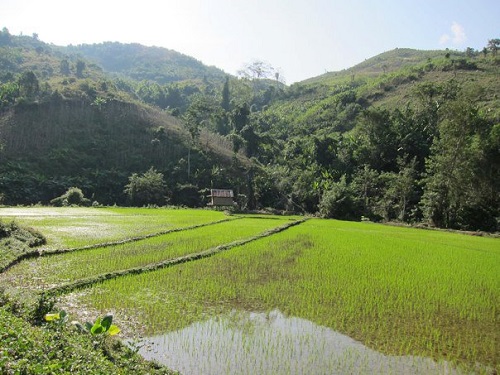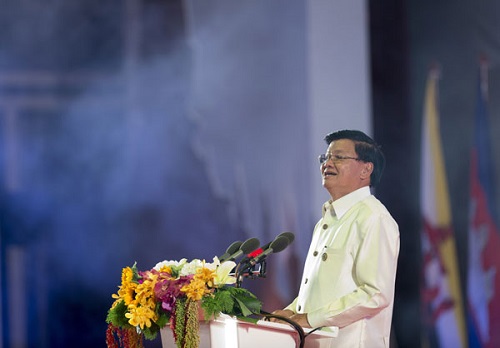Lao PM Vows To Address Chronic Land Issues
Source: Vientiane Times
Prime Minister Thongloun Sisoulith has pledged to find solutions to the many land issues that have emerged and the government has formed a taskforce committee to investigate the problems and resolve them.
The committee will investigate land concessions, the transfer of land use rights in various cases, implementation of the government’s policy to turn assets into capital, and the occupation of land by local people among other concerns, after these issues have caused land disputes and problems.
“A number of fake documents have been produced recently [to own the right to use state land]. Land use rights are seen to be owned by this and that person,” Mr Thongloun told the 2016 annual meeting of the public security sector held in Vientiane recently.
The prime minister said these issues were leading to a decrease in the amount of state land. The committee will carry out inspections across the country to see whether land concessions are being implemented correctly, the transfer of land use rights in various cases is carried out correctly, and the conversion of assets into capital is done appropriately – with no abuse of power for the purposes of personal gain.
The inspections will also determine whether local people’s land has been occupied unlawfully and also look into the inappropriate occupation of state land by local people.
The government has entrusted the taskforce committee, supervised by Deputy Prime Minister and Head of the State Inspection Authority Dr Bounthong Chitmany, to investigate and carry out a detailed analysis of emerging land issues and report the findings to the government by October.
The findings will later be reported to the Politburo of the Lao People’s Revolutionary Party and the National Assembly to seek guidance and solutions. An official with the State Auditing Organisation said implementation of the government’s policy to convert state assets into capital was one of the issues the organisation was auditing to determine whether this policy was being implemented correctly.
The government introduced this policy several years ago, which resulted in many state departments asking investors to build them new offices in suburban areas in exchange for state-owned land in the city centre where their existing offices were located.
This means state departments can have new offices without the government having to allocate a budget to fund the construction of new premises. The policy is also seen as serving the government’s attempt to relocate state offices from inner city sites to less crowded areas, with the aim of easing congestion. But problems became evident when it emerged that many state departments were failing to report the projects they carried out under the asset conversion policy to the Ministry of Planning and Investment. These projects were not included in the socio-economic development plan, which meant they were not approved by the National Assembly.
Worse, these projects did not undergo bidding, triggering concern that it could create loopholes for personal gain by undisciplined officials overseeing the projects.
As a result, the government revoked the policy as requested by parliament, in order to review the policy and draw up additional measures that would plug any potential loopholes.




